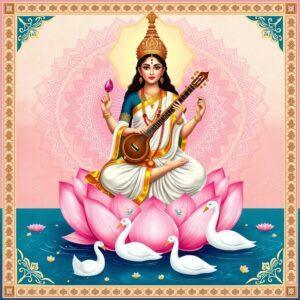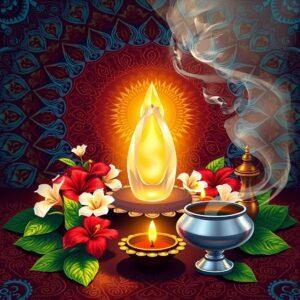
Dashakarma, a cornerstone of Hindu culture, encompasses ten essential rituals performed throughout an individual’s life, marking key transitions and milestones from birth to death. Rooted in ancient tradition, these ceremonies hold profound cultural and spiritual significance, connecting individuals to their heritage and providing a framework for a life aligned with dharma.
Understanding the Significance of Dashakarma
Dashakarma, also known as Samskaras, are purificatory rites believed to sanctify individuals at different life stages. These ten rites offer a structured approach to life’s journey, providing stability, meaning, and a sense of belonging within the community. They also serve as a vital link to cultural heritage, transmitting values and knowledge across generations.
Exploring the Ten Samskaras of Dashakarma
Each samskara carries unique significance and involves specific prayers, offerings, and ceremonies. Let’s delve into these ten essential rites:
- Garbhadhana (Conception): This ritual emphasizes the importance of preparing for parenthood – mentally, physically, and spiritually. Prayers and offerings are made to invoke blessings for a healthy and virtuous child. In modern times, this may also include preconception health consultations.
- Pumsavana (Fetus Protection): Performed during pregnancy, this rite seeks to protect the developing fetus and ensure a safe delivery. Traditional practices and prayers are combined with modern prenatal care.
- Simantonnayana (Parting of the Hair): This ceremony celebrates the expectant mother and blesses her for a smooth delivery. It signifies the community’s support and care for the mother and child.
- Jatakarma (Birth): Performed immediately after birth, this ritual welcomes the newborn into the world. It involves whispering mantras into the baby’s ear and offering blessings for a long and prosperous life.
- Namakarana (Naming Ceremony): This important milestone, typically performed on the 11th or 12th day after birth, involves bestowing a name upon the child, which is believed to influence their destiny. Family and friends gather to celebrate the new arrival and strengthen community bonds.
- Nishkramana (First Outing): This ceremony marks the baby’s first venture into the outside world, introducing them to the elements and seeking blessings for their well-being.
- Annaprashana (First Feeding): This ritual celebrates the baby’s first intake of solid food, marking a significant step in their development. It often involves a small feast and blessings for good health.
- Chudakarana (First Haircut): This ceremony involves the child’s first haircut, symbolizing purification and a fresh start. It is often performed at a temple or sacred place.
- Upanayana (Sacred Thread Ceremony): Traditionally performed for boys, this rite signifies the beginning of formal education and spiritual learning. The boy receives a sacred thread, marking his entry into Brahmacharya (student life). In contemporary times, this ceremony may also be adapted for girls, reflecting evolving societal norms.
- Antyeshti (Funeral Rites): This final rite honors the deceased and facilitates their peaceful transition to the afterlife. It involves cremation and various ceremonies to provide closure for the bereaved family. Modern practices may incorporate eco-friendly options and digital memorials.
Dashakarma in Modern Life: Adapting Tradition to Contemporary Values
In today’s fast-paced world, Dashakarma rituals provide a vital connection to cultural roots and offer a sense of grounding amidst life’s transitions. These ceremonies foster community, transmit values to younger generations, and offer a structured approach to navigating life’s milestones. The adaptation of these rituals to modern contexts ensures their continued relevance, allowing individuals to honor traditions while embracing contemporary values.
Poojn.in: Your Partner in Observing Dashakarma
Poojn.in, India’s leading online store for cultural and religious goods, offers a wide selection of products to support your Dashakarma ceremonies. From Dashakarma kits containing all essential items to individual ritual objects, Poojn.in simplifies the process of observing these sacred rites. Explore our collection and honor your traditions with ease and convenience.
Conclusion
Dashakarma, the ten sacred rites of passage in Hindu tradition, plays a crucial role in shaping individual lives and connecting us to our rich cultural heritage. By understanding and practicing these rituals, we honor our ancestors, strengthen our community bonds, and ensure the continuity of our traditions for generations to come. As we adapt these timeless practices to modern life, we create a harmonious blend of tradition and contemporary values, enriching our spiritual journey and strengthening our cultural identity.


